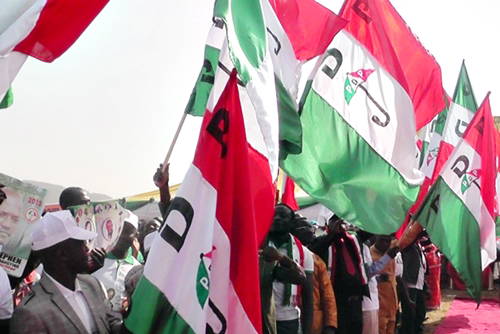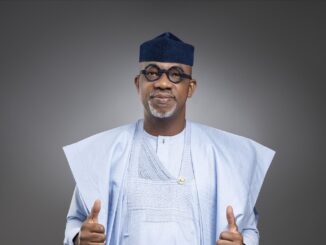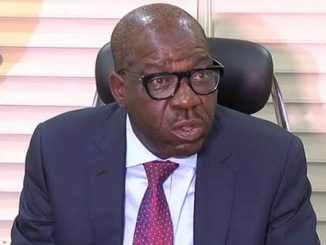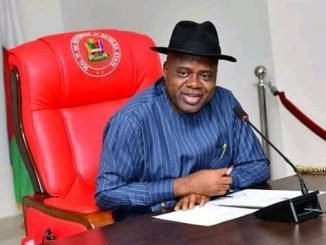
By Gideon Maxwell
November 15, 2025
In a dramatic and decisive move at the ongoing 2025 Peoples Democratic Party (PDP) National Convention in Ibadan, the party expelled several high-profile members, deepening the internal crisis but signaling a push for party discipline and unity.
Among those expelled are Minister of the Federal Capital Territory Nyesom Wike, suspended National Secretary Senator Samuel Anyanwu, former Ekiti State Governor Ayo Fayose, and prominent figures including Kamaldeen Ajibade, Austin Nwachukwu, and others.
The expulsions came amidst intense factional disputes and legal battles that have plagued the party’s leadership ahead of this crucial convention.
The Damagum-led National Working Committee (NWC), which commands the backing of PDP governors and controls the convention process, acted against the recommendations of the Board of Trustees (BoT) Reconciliation Committee.
The BoT committee had advised against proceeding with the national convention under existing fractious conditions and recommended lifting suspensions and promoting reconciliation.
However, the NWC opted to move forward and enforce strict disciplinary measures.
ALSO READ: Why Omisore stands out as Osun’s best bet for governorship in 2026
Legal challenges also cast a shadow on the convention, with a Federal High Court in Abuja issuing a final order halting the convention until former Jigawa State Governor Sule Lamido is allowed to contest the national chairmanship, a ruling that was effectively ignored by party leadership in Ibadan.
The expulsions reflect deep-rooted divisions within the PDP, notably between factions loyal to Nyesom Wike and those aligned with the Damagum faction, now recognised by the Independent National Electoral Commission (INEC) as the authentic party leadership.
Wike’s faction had vocally opposed the convention, calling for its suspension and reconciliation before any elective process.
Furthermore, the Rivers State PDP chapter announced its boycott of the convention, highlighting dissatisfaction with national leadership and lack of communication, intensifying the schism at the grassroots level.
As the convention proceeds, these expulsions mark a critical purge intended to consolidate control by the current leadership and potentially reshape the PDP’s approach to the upcoming 2027 general elections, but also risk deepening fractures unless followed by genuine reconciliation efforts.
This pivotal moment at the Ibadan convention underscores the ongoing struggle within Nigerian opposition politics between unity and factional rivalry, with major political stakes for the PDP’s future.




